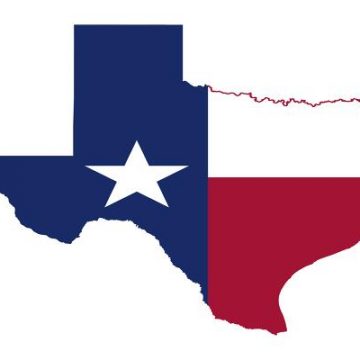
In the state of Texas, there are laws and regulations on the books that prevent the play of even the namesake game of poker – Texas Hold’em – inside the borders. Some inventive entrepreneurs, however, have been reading those laws differently and opening poker rooms to cater to throngs of players across the state. One of these rooms has come under fire from local law enforcement, however.
Plano, TX’s Big Texas Poker opened last year and had, to this point, not been harassed by the Plano Police Department. That was until this month when the owner of Big Texas Poker, Heather Zimmerman, was served with a letter from the City of Plano Police Department. The letter, signed by Assistant Chief of Police Dan Curtis, served notice that the détente that had been in existence had ended.
“It has come to our attention that you applied for a Certificate of Occupancy for Big Texas Poker, LLC,” the letter began. “The Plano Police Department is sending you notice that the business model that is being used in poker gaming establishments in Texas MAY (writer’s emphasis) be in violation of Chapter 47 of the Texas Penal Code.” Curtis’ letter continues on to put “on notice” that “enforcement action” will take place if the business continued to operate.
Naturally, Chapter 47 of the Texas Penal Code covers gambling and what constitutes violations of its statutes. The problem is that, the way these new Texas poker rooms are constituted, they aren’t violating the law. According to the statutes, selling alcohol, paying dealers or a rake being taken from the tables makes the business a “gambling establishment” and illegal.
Big Texas Poker, like many of its brethren around the state, do none of these things. They make their money through “membership” fees and “hourly fees” that the players pay up front to participate in the cash game and tournament offerings at the establishment. Under the statutes, people can play poker in a private establishment if the money risked by the players returns to the players, while the businesses make money through the fees and serving food and non-alcoholic drink.
Zimmerman is stunned at the moves by the PPD regarding Big Texas Poker, the business her and her husband Fred have created. They have attempted to contact Curtis but have been stonewalled first by the department saying the officer was “out of town,” then blatantly ignored when promised return calls were not made. As of now, Big Texas Poker has suspended operations until September 27 on the advice of Zimmerman’s attorneys.
Big Texas Poker and Zimmerman have started a Go Fund Me page to help with the legal costs to fight the Plano Police Department. “Clubs like ours have been operational for several years in Austin and now are open across the state in seven other cities,” Zimmerman writes in her plea on the Go Fund Me page. “Until recently, there has been no challenge to the legality of this model, but with Texas clubs under attack, we need your help to keep poker legal in Texas.”
Zimmerman reiterates that her business has tried to negotiate with law enforcement, who have not responded to any overtures. In Zimmerman’s view, the poker rooms as they have been constituted do not violate the law and actually help to provide a legitimate avenue for people to play poker. “Without your help, Texas poker players will be forced to play in expensive, illegal, underground card rooms that are rife with organized crime, drugs, and prostitution, or drive or fly out of state to play,” Zimmerman writes.
Since 1937, it has been illegal for card rooms to exist in Texas. This is rather odd due to the historic background of such card rooms in the state. During the Wild West days, poker and other gambling activities (faro and roulette, normally) migrated from the banks of the Mississippi to the frontier towns that sprang up as the States of America grew. It wasn’t uncommon for each saloon in a bustling town to have a poker table on the premises for cowboys and others to test their skills against each other.
Texas Hold’em, according to legend, also got its birth in the state. The game was allegedly first played in the early 1900s in Robstown, TX, and was brought to Las Vegas in the 1960s by the “road gamblers” who came from the Lone Star State like Doyle Brunson, “Amarillo Slim” Preston and Crandell Addington. Addington has commented that he first saw the game in 1959, saying that it was just called “Hold’em” then and that its potential for capturing the attention of players was obvious. “In draw poker, you bet only twice; in Hold’em, you bet four times…this was more of a thinking man’s game.”
While it seems things will be quiet for the moment at Big Texas Poker, the battle is just beginning. Our attempts to speak with the Plano Police Department and Assistant Chief Curtis have gone unanswered, but we’ll continue to monitor the situation.















